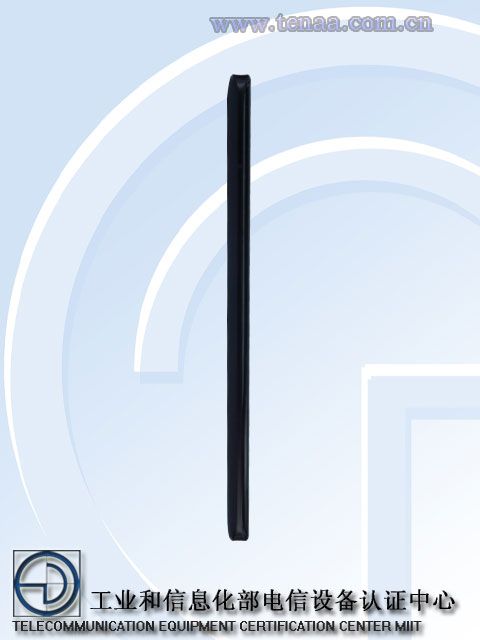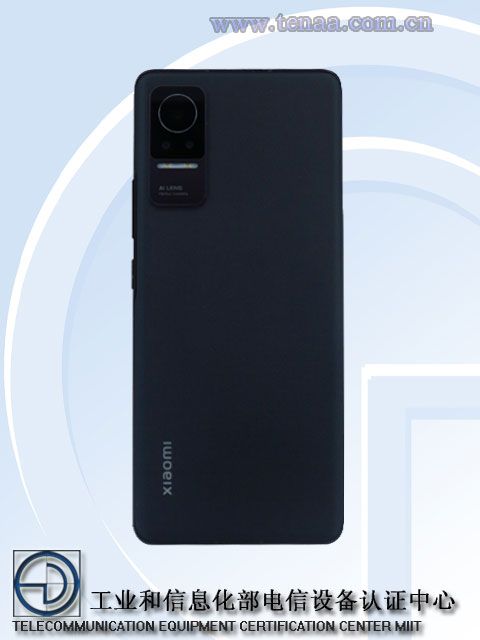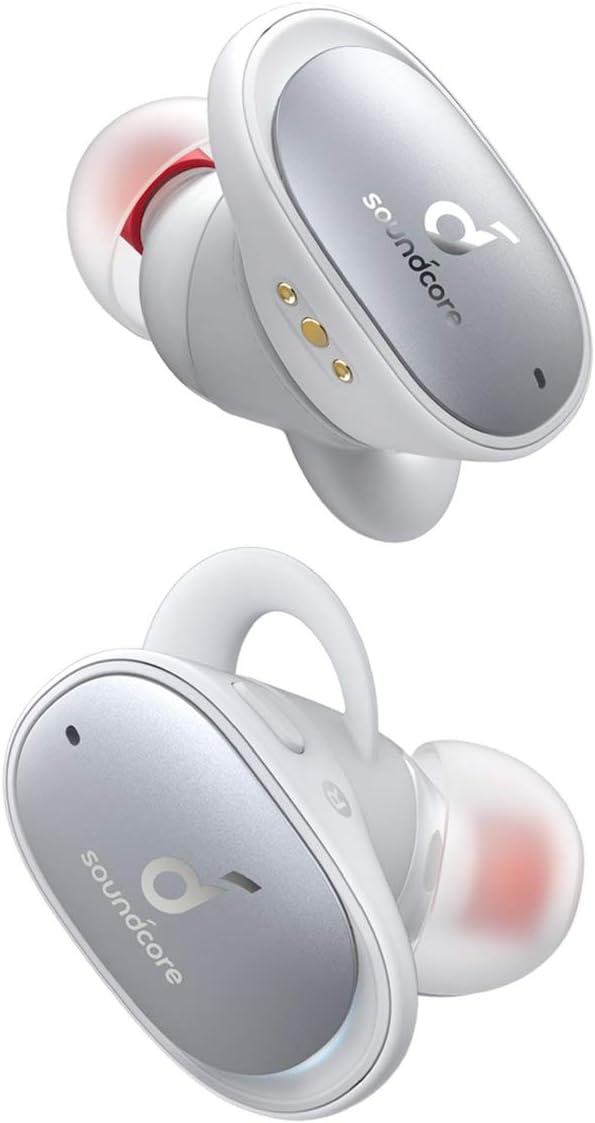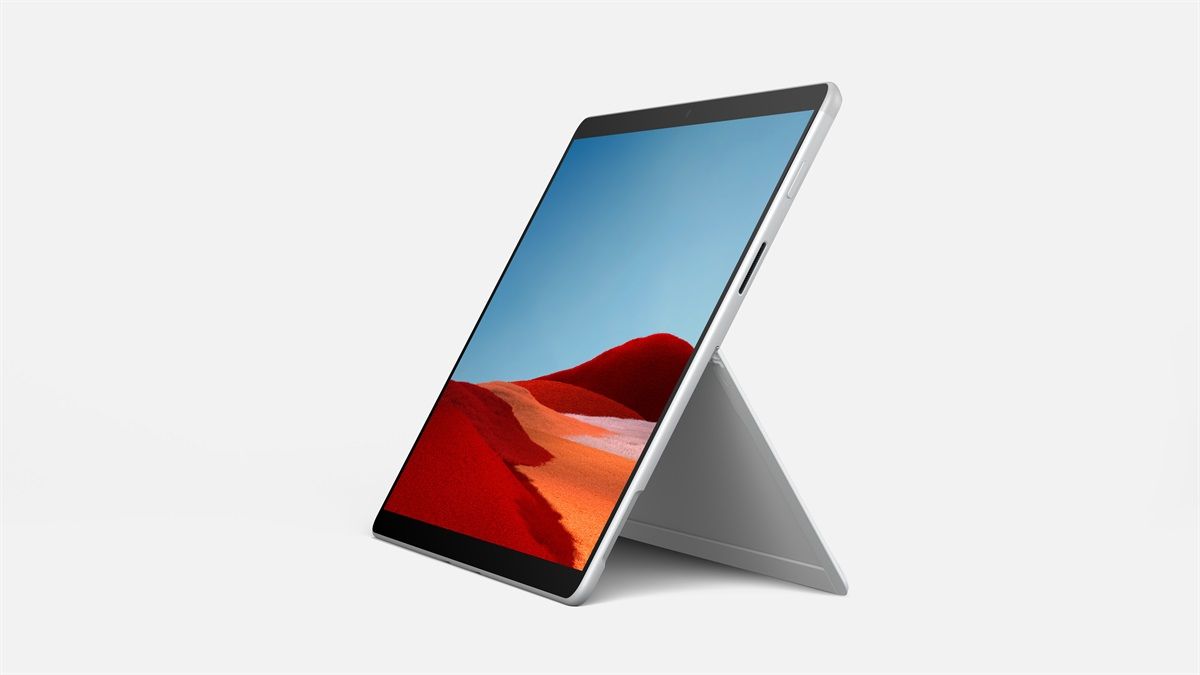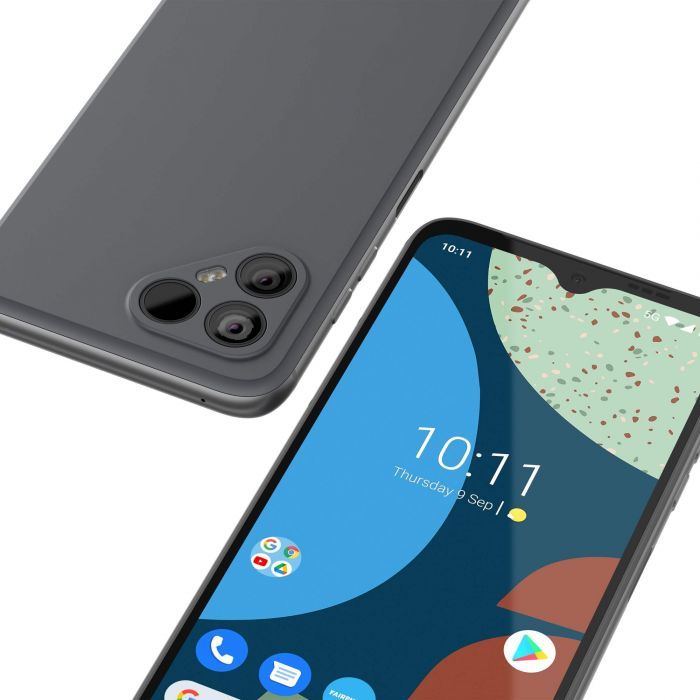Of course, if you’re looking for a tablet to replace your PC, there’s several other options worth looking at as well. The Samsung Galaxy Tab S7+ is the best Android tablet you can buy today, with a beautiful screen, solid speakers, and a thin and light design. While both tablets are similar in a few key areas, they also run differing operating systems and are aimed at different market segments.
In this comparison we’ll look at how these tablets stack up and discuss which one is best for your use case. This is the Surface Pro X vs Samsung Galaxy Tab S7+.
| Specification |
Surface Pro X |
Samsung Galaxy Tab S7+ |
| Dimensions & Weight |
- 11.3 x 8.2 x 0.28 in (287.02 x 208.28 x 7.3 mm)
- 1.7 lbs (774 g)
|
- 285.0 (W) x 185.0 (H) x 5.7mm (D)
- 1.27 lbs (575 g) (Wi-Fi, LTE, 5G)
|
| Display |
- 13-inch PixelSense Flow (2880 x 1920) display
- Up to 120Hz refresh rate, touch, Surface Pen support
|
- 12.4-inches
- 2800×1752 (WQXGA+)
- Super AMOLED
- 120H
|
| Processor |
- Microsoft SQ1 (up to 3GHz, 8-core)
- Microsoft SQ2 (up to 3.15GHz, 8-core)
|
- Qualcomm Snapdragon 865 Plus
|
| RAM & Storage |
- 8 or 16GB of RAM
- 128GB, 256 GB, or 512 GB storage
|
- 6GB LPDDR5 RAM + 128GB UFS 3.0 storage
- 8GB LPDDR5 RAM + 256GB UFS 3.0 storage
- Expandable storage (up to 1TB microSD)
|
| Graphics |
- Adreno 685 (SQ1)
- Andreno 690 (SQ2)
|
|
| Battery and Charging |
- Up to 15 hours of typical device usage
|
- 10,090 mAh
- 45W Super Fast Charging
|
| Webcam |
- 5MP, Full HD front-facing camera
- 10MP, Full HD/4K rear-facing camera with autofocus
|
- Rear camera: 13MP f/2.0 main + 5MP f/2.2 ultra-wide, LED flash.
- Front camera: 8MP f/2.0
|
| Colors |
- Platinum (SQ2 only)
- Matte Black
|
- Mystic Bronze, Mystic Silver, Mystic Black, Mystic Navy.
|
| Port(s) |
- 2 USB Type-C
- 1 Surface Connect port
- nano SIM slot
|
- USB Type-C, 3.2 Gen 1, DP Out
|
| Audio |
- Two 2W stereo speakers with Dolby Atmos
|
- Quad Speakers
- Tuned by AKG, Dolby Atmos
|
| Connectivity |
- Wi-Fi 5 + Bluetooth 5.0
- Optional: LTE Advanced Pro (Qualcomm Snapdragon X24)
|
- 5G, LTE, Wi-Fi 6 (802.11 a/b/g/n/ac/ax)
- Wi-Fi Direct, Bluetooth 5.0
|
| Software |
Windows 11 |
Android 11 |
| Other Features |
- Microsoft Surface keyboard support
- Surface Slim Pen 2 support
|
- Under-display fingerprint scanner
- Fingerprint scanner in power button
- Samsung S-pen support
- Samsung DeX support.
|
Surface Pro X vs Samsung Galaxy Tab S7+: Design and build
The Surface Pro X is beautifully designed, with relatively thin bezels around the front of the tablet. While the Surface Pro X isn’t exactly heavy at 1.7 lbs, it’s a bit much to use as a handheld device for a long period of time. To this end, you might prefer the Galaxy Tab S7+ if portability if your chief concern — it’s much lighter at only 1.27 lbs. The screen is also slightly smaller on the Tab S7+, another thing that makes it easier to use as a true tablet.

The Tab S7+ is substantially lighter however. If you use it primarily as a handheld device, you’ll feel the heft and at 285mm tall by 185mm wide, it’s still not the most comfortable thing to use without a case. We definitely recommend buying the official Samsung keyboard cover if you opt for the Tab S7+. Samsung has made some tweaks to the software so the keyboard can be split or turned into a floating keyboard, but you’ll want a keyboard cover — it’s just too uncomfortable otherwise.
While most of the Galaxy Tab S7 Plus is stylish and sleek, the position of the S Pen on the rear is problematic and honestly, quite unsightly. Using relatively strong magnets, the S Pen automatically attaches to the back. Connecting to an extended magnetized area that blends into the camera housing, this is probably the best Samsung could do, but it’s not the most stylish thing.

The Surface Pro X wins in the ports department as the Surface Pro X features two USB-C ports. Unfortunately, both tablets opt to remove the 3.5 mm headphone jack. If you prefer to listen to music with wired headphones, you’ll have to look elsewhere or deal with USB-C headphones, which make it more difficult to charge the device while listening to music.
While both of these tablets have a pleasing design aesthetic, the Surface Pro X looks more modern with slimmer bezels. The camera housing also looks a bit more uniform on the Surface Pro X, a small detail, but definitely something you’ll notice in daily use.
Surface Pro X vs Samsung Galaxy Tab S7+: Display
Samsung is well known for their amazing display quality and they seem to have the advantage in this battle. There’s no other way to put it – the Galaxy Tab S7 Plus is stunning, and the display is visually breathtaking. Apple likes to tout marketing terms like Retina Display, but the 12.4 inch Super AMOLED display on the Galaxy Tab S7 Plus is in a league of its own. At 1752 x 2800 pixels and a 16:10 aspect ratio, the display “only” offers 266 pixels per inch density, but much like megapixels aren’t the only deciding factor in cameras, the quality of the Galaxy Tab S7 Plus display is second to none when it comes to Android tablets.
The display supports HDR 10+ and offers a 120HZ refresh rate, for super smooth scrolling. Samsung put an in-display fingerprint scanner on this tablet, although it can be a bit awkward to use due to the display size. Of course, you can also use Samsung’s bundled S-Pen for note-taking or drawing on the Tab S7+.

With the Surface Pro X, you get a glorious high-resolution screen with PixelSense technology, but it doesn’t have the higher 120Hz refresh rate found on both the Galaxy Tab S7+ and the new Surface Pro 8. If you use your tablet for reading or scrolling through websites and social media, the higher refresh rate is actually a fairly significant factor. The screen still looks great and gets sufficiently bright for outdoor viewing, but those things are also excellent with the Samsung tablet.
Thankfully, if you use inking, the Surface Pro X can use the new Surface Slim Pen 2. Note taking is nice on the Tab S7+, but with One Note and this new pen functionality, the Surface Pro X is the better option for notes.

Both tablets have amazing displays, but the Surface Pro X is likely the better bet for true productivity. The new Slim Pen 2 offers an unparalleled experience for taking notes and drawing on a tablet. While the S-Pen is convenient and intuitive, it isn’t quite as good for professional use. If you’re just interested in consuming media, gaming, and light web browsing, you’ll definitely be happy with either display.
Surface Pro X vs Samsung Galaxy Tab S7+: Performance
When it comes to performance, these machines have a number of key differences. The Surface Pro X is a Windows tablet designed for both media consumption and productivity. However, it’s worth noting that with the Surface Pro X, you’re dealing with ARM processors, and many Windows apps are still designed for x86 processors. This means you’ll sometimes be running apps through emulation, which can take a toll on performance. Overall though, performance should always be better on the Surface Pro X. Plus, it’s worth mentioning that with Windows 11, 64-bit x86 apps are also supported through emulation, so you no longer have to worry about apps being incompatible.
The integrated graphics in the Surface Pro X are also generally more powerful than those in the Samsung Galaxy Tab S7+ . On the other hand, the Samsung Galaxy Tab S7+ is an Android tablet focused on watching videos, playing games, and the occasional light productivity task here and there. Keeping these targets in mind, the Surface Pro X is a much more capable tablet when it comes to raw power.

The Snapdragon 865+ inside the Tab S7+ is still incredibly capable for basic tablet functions and can handle any Android games you want to play. Still, the Tab S7+ is getting older and feeling a bit outdated even when compared to other Android tablets. In fact, the Snapdragon 865+ isn’t even the newest Qualcomm chip for Android tablets. The Tab S7+ is more than a year old and due for a refresh, so it’s definitely even further behind in performance due to this issue.
The Surface Pro X also offers more options for RAM and storage, going up to 16GB and 512GB, respectively. Both of those are way more than what the Samsung Galaxy Tab S7+ can offer. The TabS7+ only goes up to 256GB in any configuration, but there’s an option to add expandable storage via microSD up to 1TB. You can also get 5G on the Galaxy Tab S7+, if that’s something you really care about.

The Surface Pro X promises up to 15 hours of typical usage, but as usual, that’s likely considering minimal brightness and only the lightest of workloads. If you use the device on higher brightness or have a heavier workload, you can expect closer to 10-12 hours on average. The Tab S7+ is similar with an average battery life of about 12 hours according to most reviews.
The key thing to consider is you’ll likely use the Surface Pro X for more serious work with all of the bundled Microsoft functionality, so it might also drain the battery a bit faster than watching Netflix or YouTube.
Surface Pro X vs Samsung Galaxy Tab S7+: Cameras and audio
The cameras are another area where Microsoft really shines. The rear camera features a 10MP sensor with 4K video. On the front, the Surface Pro X has a 5MP Full HD camera. While that might not sound like a lot by smartphone standards, it’s very impressive by laptop and tablet benchmarks.

The dual camera on the Tab S7+ combines a primary 13MP wide-angle sensor with f/2.0 aperture, with a 5MP ultra-wide sensor with f/2.2 aperture. The camera is ok at first glance, but no one should buy a tablet for its camera — please don’t be that person. The front camera is definitely more important these days, especially for things like video calls, and the 8MP f/2.0 sensor will likely be ok, although it is limited to Full HD at 30 frames per second.
If you really must be the person using a giant tablet to take photos or videos, you’ll be happy to know the rear camera supports 4K video, also at 30 frames per second.

In terms of sound, the Surface Pro X features 2W stereo speakers, so on a hardware level, they should be pretty good. The Tab S7+ also has an excellent audio experience. The quad speakers tuned by AKG are loud, clear, and immensely enjoyable. The speakers have the added benefit of louder notifications, but you’ll want to turn those down as they can be overpowering. If you’re buying the Galaxy Tab S7 Plus to enjoy media or listen to music, you won’t be disappointed.
Conclusion
These two tablets are a lot closer than the Surface Pro 8 and Tab S7+, which isn’t really a fair fight. Still, if you’re looking for the best media consumption tablet, it’s probably the Samsung Galaxy Tab S7+. It’s lighter, costs less, and has the added benefit of slightly better speakers. You can also enjoy all the games offered on the Google Play Store, so the Tab S7+ is very compelling as an entertainment tablet.
On the other hand, the Surface Pro X is a better all-round machine. If you need something to use as a media tablet and a true work PC, the Surface Pro X can handle everything you throw at it. In addition to slightly better performance, you also get an amazing note taking experience with the new Slim Pen 2, despite losing the haptic feedback found on the Surface Pro 8 and Surface Laptop Studio. Storage options are also more expansive so you can store everything you need for work and play. If you need a more robust work PC, definitely check out Microsoft’s other new Surface devices.
The Galaxy Tab S7+ is the best Android tablet on the market right now. Not many come close to the iPad Pro, but this is as close as you'll get. Powerful specs, a premium feel and excellent features make up a flagship tablet that will cost you a flagship price tag.
The Surface Pro X is a premium ARM-based tablet, offering great performance and battery life in a thin and lightweight design. It now comes in a Wi-Fi-only model.


